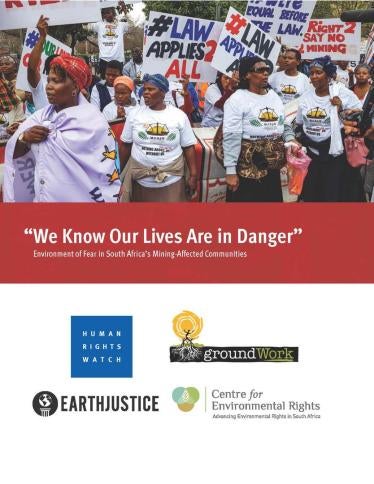Destroying Cultural Heritage
Explosive Weapons’ Effects in Armed Conflict and Measures to Strengthen Protection
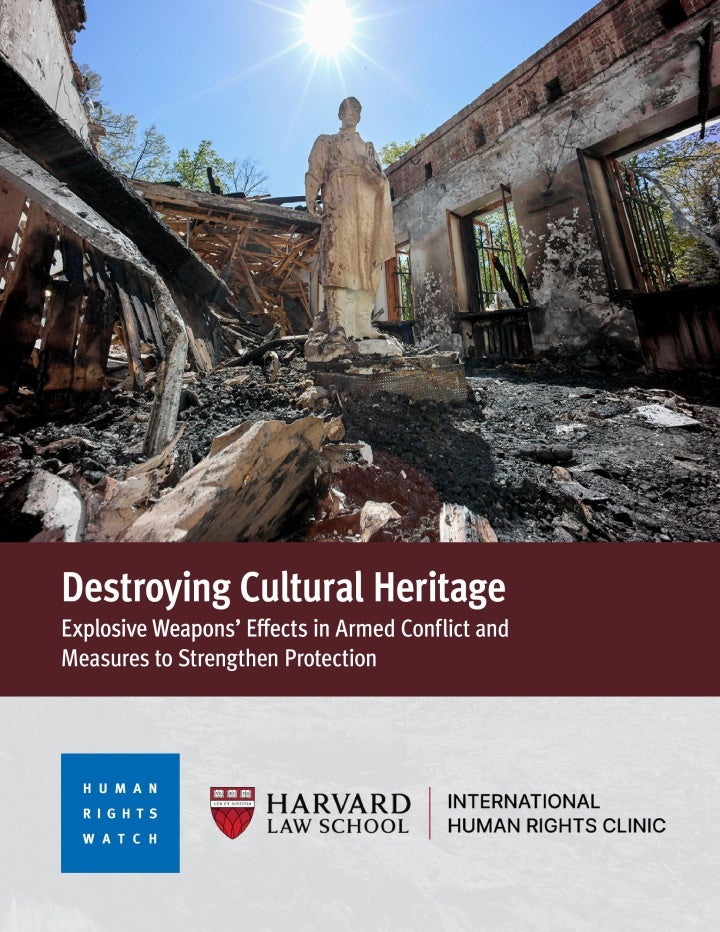

Explosive Weapons’ Effects in Armed Conflict and Measures to Strengthen Protection


This report documents killings, disappearances, sexual violence, recruitment of children as soldiers, and forced displacement by the National Liberation Army (ELN), Popular Liberation Army (EPL), and a group that emerged from the demobilized Revolutionary Armed Forces of Colombia (FARC). Armed groups use threats to gain control, including against community leaders and human rights defenders, some of whom have been killed. Venezuelans who fled the humanitarian emergency in their country are among the victims.
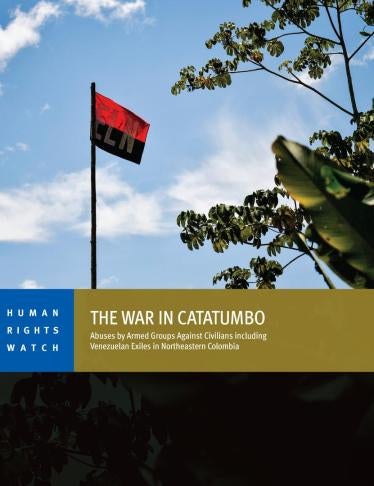
This documents violence experienced by sex workers in South Africa, and their difficulties in reporting crimes and creating safe places to work. Sex workers also reported being sexually exploited by police and forced to pay bribes to officers.
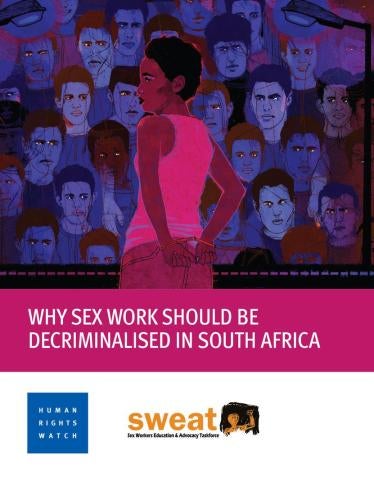
This report found that the crisis is a result of complex factors that if left unaddressed will most likely result in future water-borne disease outbreaks and continued economic hardship. The authorities at the local and federal level have done little to address the underlying conditions causing the situation.
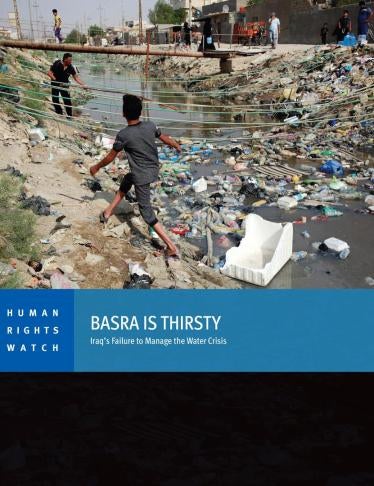
This report finds that thousands of asylum seekers from Central America and elsewhere, including more than 4,780 children, are facing potentially dangerous and unlivable conditions after US authorities return them to Mexico. The US and Mexico agreed on June 7, 2019 to dramatically expand the returns program.
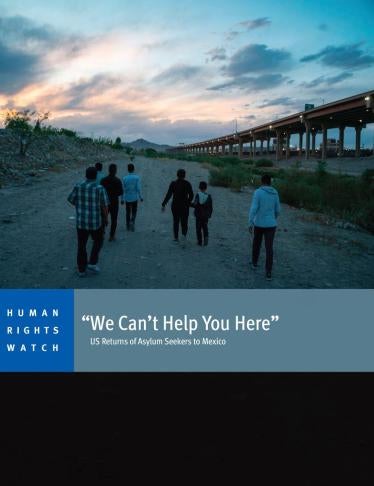
This report looks at the government’s policies for and restrictions on humanitarian assistance and reconstruction and development funding to Syria. Human Rights Watch found that the Syrian government has developed a policy and legal framework that allows it to divert aid and reconstruction resources to fund its atrocities, punish those perceived as opponents, and benefit those loyal to it.
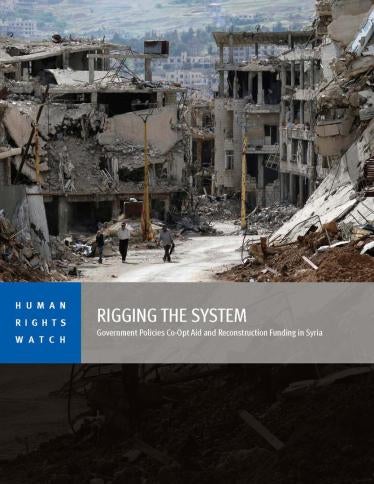
This report documents what happened to many of the hundreds of people arrested by police or abducted by armed pro-government groups after the crackdown on protesters that began in April 2018. Many were subjected to abuse that in some cases amounted to torture. Some who were injured were reportedly denied medical care in public health centers, and doctors who provided care said they suffered retaliation. Detainees have been prosecuted in cases marred by serious due process violations.
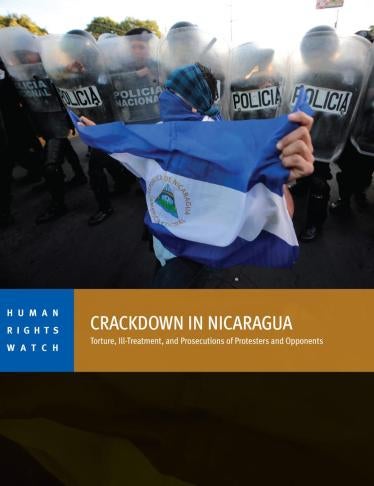
This report documents how authorities have stalled the rollout of a long-awaited sexuality education program, leaving hundreds of thousands of adolescent girls and boys without scientifically accurate information about their health. The country has the highest teen pregnancy rate in Latin America and the Caribbean, according to the Pan American Health Organization (PAHO). The country’s total ban on abortion means an adolescent girl facing an unwanted pregnancy must continue that pregnancy against her wishes or obtain a clandestine abortion, often at great risk to her health and even her life.
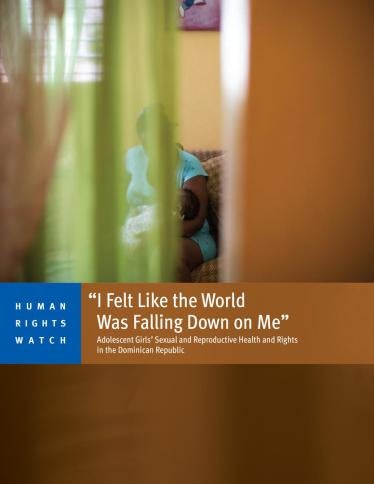
Nearly 10 years after Human Rights Watch’s first report documenting abuses against talibé children in Senegal, the scale of ongoing abuse remains staggering. Over 100,000 talibé children living in traditional Quranic schools are forced to beg daily by their teachers. This report documents scores of serious abuses committed against talibé children in 2017 and 2018 by Quranic teachers or their assistants, including forced begging, beatings, sexual abuse, chaining, imprisonment, and the deaths of 16 talibé children due to abuse, neglect or endangerment. The report also documents human trafficking and dangers linked to talibé migration.
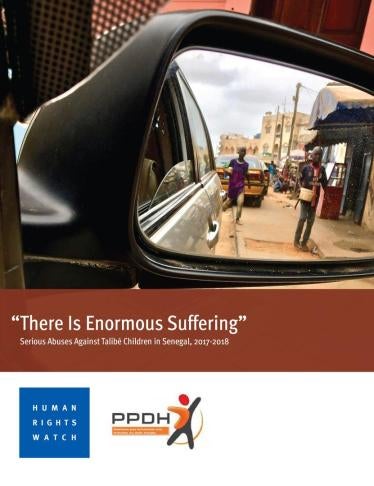
Since 2011, the Egyptian military and police have battled ISIS-affiliated militants in North Sinai governorate. Sparsely populated, and with roughly half-a-million residents, this northern part of the Sinai Peninsula that borders Israel and the Gaza Strip has been a historically marginalized territory, separated from the rest of the country by the Suez Canal. Thousands have been arrested, and hundreds have been disappeared in the past six years since the conflict escalated in 2013. Tens of thousands of residents have been forcibly evicted or fled their homes due to ongoing violence.
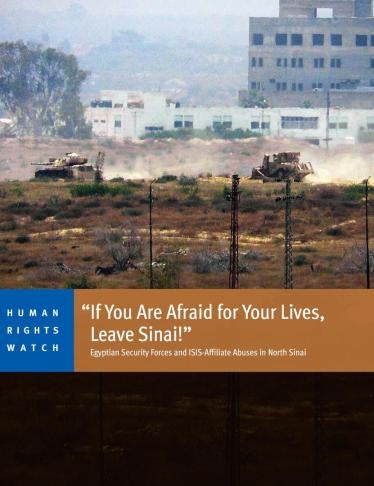
This report contains examples of law and practice from 50 countries, from Afghanistan to Yemen, that provide some level of protection for schools or universities from military use. Many of the examples come from countries currently or recently involved in armed conflict.
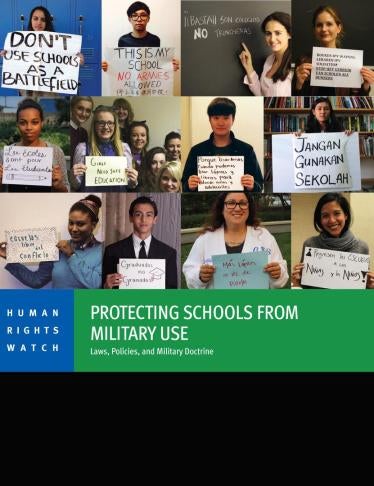
This report examines how deep, austerity-motivated cuts to the welfare system, exacerbated by the introduction of the Universal Credit system and other changes, have left many families with children in England going hungry and dependent on food aid from charities. Many of these families are single parent households led by women. Human Rights Watch found that the UK government is failing to meet its duty under human rights law to ensure the right to adequate food.
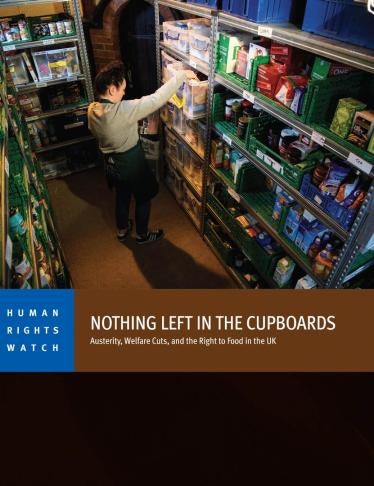
This report finds that children suffer from corporal punishment at school because of a lack of accountability for the abusers. Human Rights Watch said that Lebanon should enforce a longstanding ban on corporal punishment and propose ways in which the Education Ministry, with support from international donors, can end the abuse.
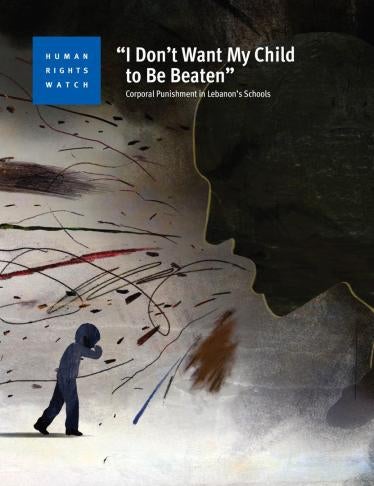
This report presents new evidence about the surveillance state in Xinjiang, where the government has subjected 13 million Turkic Muslims to heightened repression as part of its “Strike Hard Campaign against Violent Terrorism.” Between January 2018 and February 2019, Human Rights Watch was able to reverse engineer the mobile app that officials use to connect to the Integrated Joint Operations Platform (IJOP), the Xinjiang policing program that aggregates data about people and flags those deemed potentially threatening. By examining the design of the app, which at the time was publicly available, Human Rights Watch found that Xinjiang authorities are collecting a wide array of information from ordinary people.
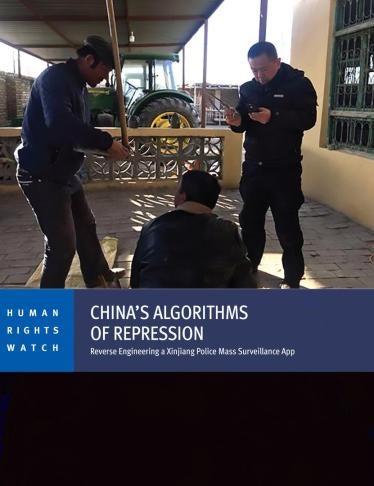
This report identifies key practices by clothing companies that fuel abusive cost-cutting methods by factories that harm workers. Many global brands tout their commitment to ensuring rights-respecting workplaces in the factories that produce their goods, but undercut their efforts with relentless pressure on suppliers to drive down prices or produce faster, Human Rights Watch found. Many suppliers respond to those pressures with abusive cost-cutting methods that harm workers. One factory owner ruefully summarized the problem, saying that brands are “paying for a bus ticket and expecting to fly.”
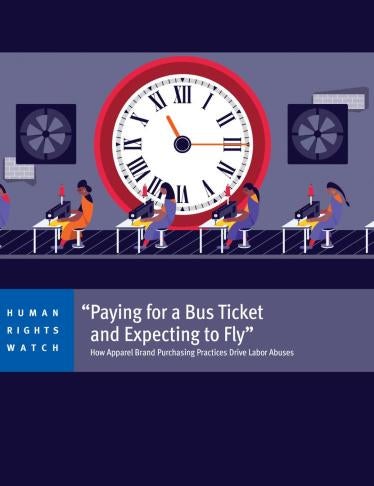
The 73-page report “‘We Know Our Lives Are in Danger’: Environment of Fear in South Africa’s Mining-affected Communities” and video cites activists’ reports of intimidation, violence, damage to property, use of excessive force during peaceful protests, and arbitrary arrest for their activities in highlighting the negative impacts of mining projects on their communities. Municipalities often impose barriers to protest on organizers that have no legal basis. Government officials have failed to adequately investigate allegations of abuse, and some mining companies resort to frivolous lawsuits and social media campaigns to further curb opposition to their projects. The government should protect the activists.
